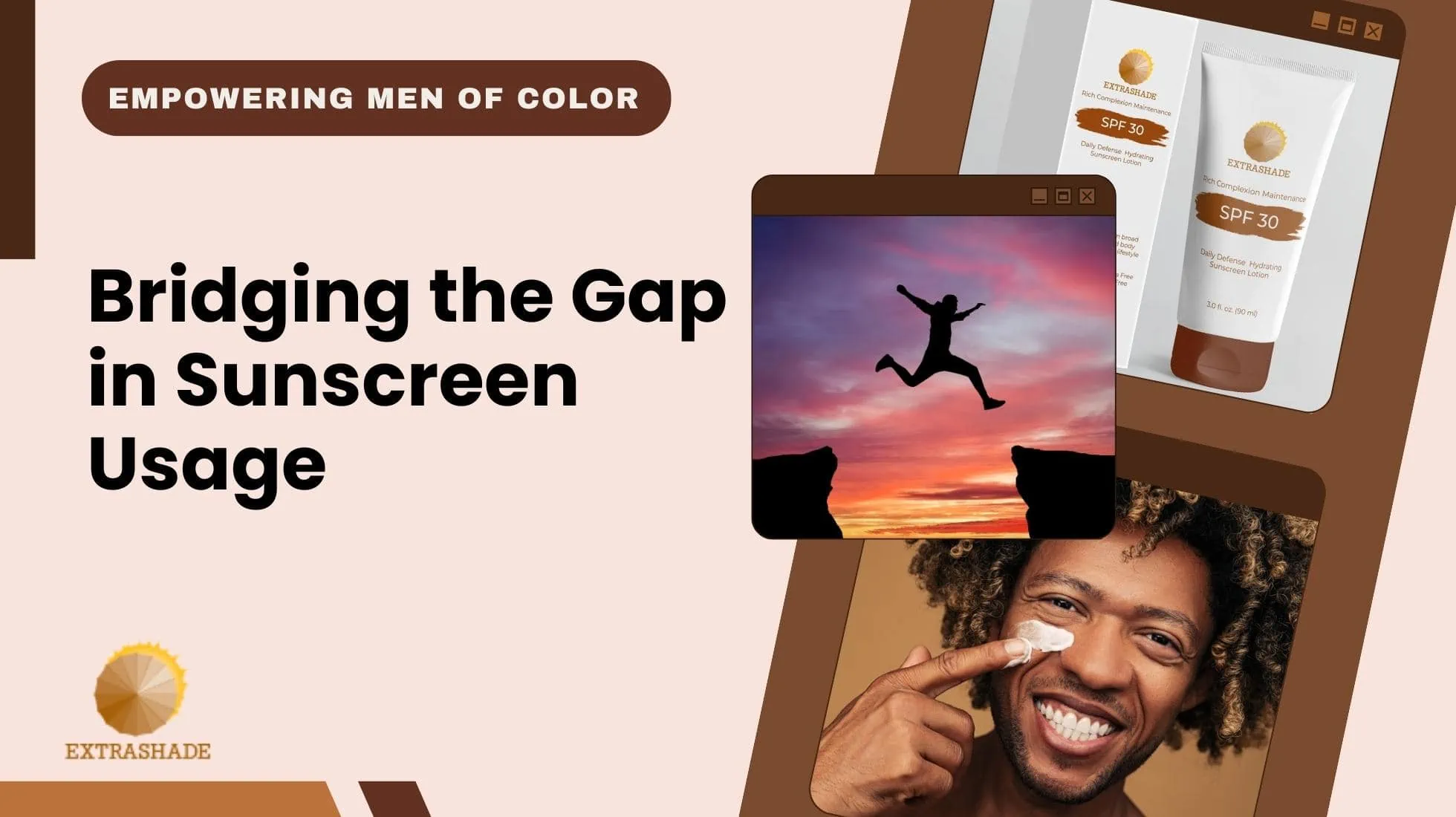Skin cancer, the most commonly diagnosed cancer in the United States, affects millions annually. Strikingly, men, especially those of color, face higher risks, and preventive measures are not as widely adopted as they should be.
This article explores a recent survey of 705 men, shedding light on their motivations, behaviors, and preferences regarding daily sunscreen use. The insights gained can serve as a foundation for promoting effective skincare, especially within communities where awareness is crucial. The data for this study were collected through a cross-sectional online survey published in the Journal of Drugs in Dermatology
The Gender Disparity in Skin Cancer
Skin cancer, including melanoma and non-melanoma types, disproportionately affects men. Studies indicate that men, regardless of race and ethnicity, develop skin cancers at higher rates than women. UV-induced immune suppression and diminished skin responses to environmental stressors contribute to this gender gap. In 2019, men were predicted to account for 60% of new skin cancer cases, emphasizing the urgency for targeted prevention strategies.
Survey Methodology
The survey, conducted from July to August 2019, targeted men aged 20–70 across diverse racial, ethnic, and sexual orientation groups. The study aimed to understand skincare habits, sunscreen usage, and factors influencing these behaviors. Participants were recruited through Amazon Mechanical Turk, ensuring a broad representation.
Sunscreen Usage Patterns
The survey revealed that a significant majority (83%) of men do not use sunscreen daily. Income emerged as a crucial factor, with those earning between $40,000 and $50,000 annually showing lower sunscreen usage compared to higher income brackets. However, age, sexual orientation, race, ethnicity, and region did not significantly influence sunscreen habits.
Motivations for Sunscreen Use
Understanding men’s motivations for sunscreen use is key to designing effective awareness campaigns. The primary motivators identified were the desire to reduce skin cancer risk (82%) and maintain a youthful appearance (42%). Tailoring messages to emphasize these factors can be pivotal in increasing men’s interest in daily sunscreen use.
Preferred Product Characteristics
Exploring preferences for daily sunscreen facial lotions, participants highlighted moisturizing (31%) and non-irritating (27%) as the most important characteristics. Conversely, factors like oiliness (43%) were deterring. This information provides valuable insights for developing products that align with men’s preferences.
Implications for Skincare Education
The survey underscores the need for targeted skincare education, particularly among men of color. Despite the increased vulnerability, this demographic is not adequately adopting daily sunscreen habits. Physicians, communication specialists, and public health campaigns can leverage these findings to create impactful messages and interventions.
Addressing Trust and Credibility
Physicians play a crucial role in influencing patient behaviors. The study emphasizes the importance of credible, trusted sources in promoting behavior change. Physicians can convey the simplicity of incorporating sunscreen into daily routines, leveraging their influence to increase adherence to preventive measures.
Promoting Inclusivity in Skincare Campaigns
In developing informational campaigns, there’s an opportunity to reach diverse audiences through various channels, including social gatherings, podcasts, and social media. Tailoring messages to resonate with different audiences, considering factors like language and cultural nuances, can enhance the impact of awareness initiatives.
Future Research Directions
The study points to areas for further research, such as exploring influential sources and mediums for informational campaigns. Understanding the trust dynamics between patients and healthcare providers can guide the development of effective communication strategies.
Conclusion
The survey results reveal a critical need to address gaps in sunscreen usage among men, particularly men of color. By focusing on motivations, preferences, and barriers identified in this study, skincare campaigns can be tailored to empower men to integrate sun protection into their daily lives. The findings not only have implications for individual health but also contribute to the broader goal of reducing skin cancer rates, promoting inclusivity, and fostering healthier communities.

